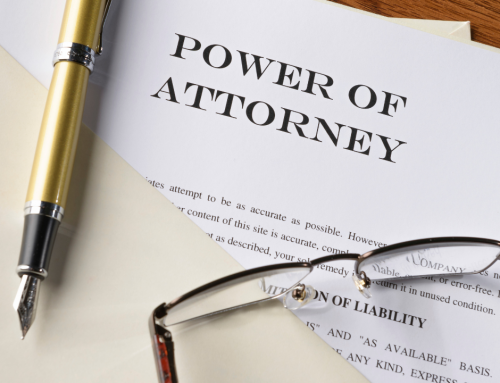When planning for the future, understanding the scope and limitations of a Power of Attorney (PoA) is crucial. A Power of Attorney is a legal document that allows one person, known as the “donor,” to appoint another person or persons, known as “attorneys,” to make decisions on their behalf. This arrangement can provide peace of mind and ensure that decisions are made in the best interests of the donor if they become unable to make those decisions themselves. However, it’s important to note that certain decisions are beyond the reach of an attorney, regardless of the type of PoA in place. This blog will explore those limitations to provide a clear understanding of what an attorney can and cannot do.

Decisions Beyond the Power of Attorney
- Changes to the Will: An attorney cannot alter the donor’s will under any circumstances. The will is a separate legal document that outlines how the donor wishes their estate to be distributed after their death. Any changes to the will must be made by the donor themselves, provided they have the mental capacity to do so.
- Consent to Marriage or Civil Partnership: An attorney cannot make decisions about entering into or dissolving a marriage or civil partnership on behalf of the donor. These deeply personal decisions require the direct consent of the individual involved.
- Voting Rights: The right to vote is a personal civic duty that cannot be delegated to an attorney. This ensures the integrity of the electoral process and protects the individual’s right to participate in democracy.
- Adoption and Parental Rights: Attorneys are not permitted to make decisions regarding the adoption of children or to consent to medical treatment for a child in place of a parent. These are considered personal decisions that require the direct involvement of the individual.
- Refusal of Life-Sustaining Treatment: If the Power of Attorney does not specifically include the power to make decisions about life-sustaining treatment, then the attorney cannot make these decisions. It is essential for the donor to clearly outline their wishes regarding healthcare in the PoA document, especially in a Health and Welfare PoA.
- Illegal Activities: Attorneys are bound by law to act in the donor’s best interests and within the framework of the law. They cannot engage in or authorise any illegal activities on behalf of the donor.
Conclusion
A Power of Attorney is a powerful tool for managing one’s affairs, but it is not without its boundaries. These limitations are designed to protect the most personal rights and ensure that attorneys act within the law and the donor’s best interests. For those considering setting up a PoA, it’s vital to seek professional advice to understand its implications fully.
Understanding the limits of a Power of Attorney ensures that all parties involved are clear about their roles and responsibilities, preventing misuse and ensuring that the donor’s rights and wishes are respected at all times. If you need to arrange a General Power of Attorney or a Lasting Power of Attorney over your affairs, whether this be temporarily or permanently, our expert legal team at The Will Centre can provide you with friendly and professional advice based on your personal circumstances.






